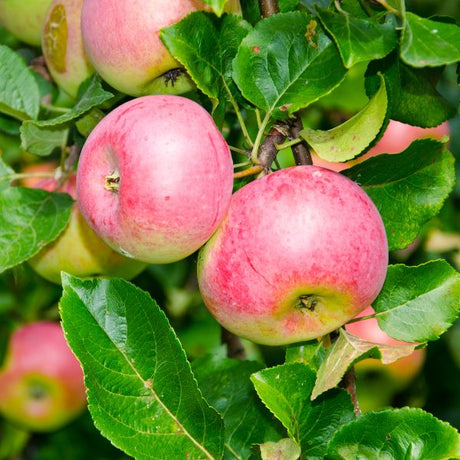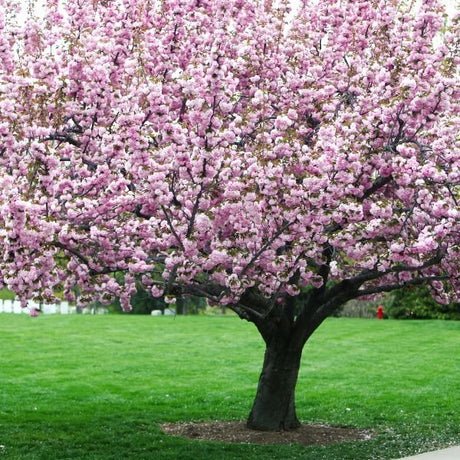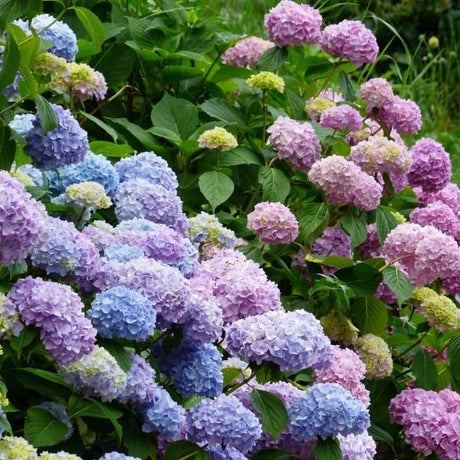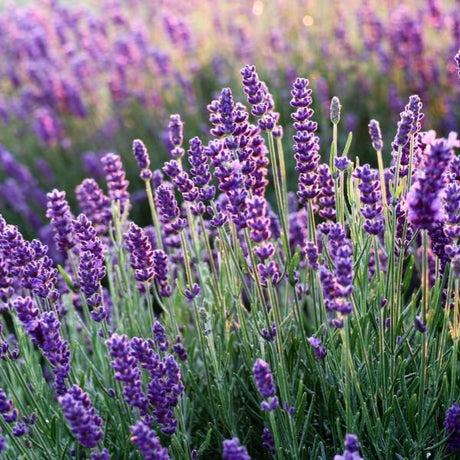Elephant Heart Japanese Plum Tree
Prunus salicina 'Elephant Heart'
- Stay Protected with Plant Sentry ™
Elephant Heart Japanese Plum Tree is backordered and will ship as soon as it is back in stock.
Plant Sentry™
Plant Sentry™

Plant Sentry™ Protected
Your order is protected by our compliance system that:
- Prevents restricted plants from shipping to your state
- Ensures plants meet your state's agricultural requirements
- Protects gardens from invasive pests and diseases
Delivery and Shipping
Delivery and Shipping
Delivery and Shipping
Fast, Safe Plant Delivery
Ships in 3-4 business days • Tracking provided • Weather protected
| Under $50 | $9.99 |
| $50 - $99.99 | $14.99 |
| $100 - $149.99 | $16.99 |
| $150+ | $24.99 |
✓ Zone-specific timing • ✓ Professional packaging • ✓ Health guarantee
Understanding Plant Options
Nature Hills offers plants in two main formats:
- Container Plants: Grown in pots with soil, sized by container volume and plant age
- Bare Root Plants: Dormant plants without soil, sized by height measurements
Container Plant Sizes
Container sizes indicate plant age and growing capacity rather than liquid volume equivalents. Our containers follow industry-standard nursery "trade gallon" specifications, which differ from standard liquid gallon measurements.
Young Plants (6 months to 18 months old)
| Container Size | Actual Volume | Metric Equivalent |
|---|---|---|
| 2" x 2" x 3" | 0.18 - 0.21 dry quarts | 0.20 - 0.23 dry liters |
| 4" Container | 0.31 - 0.87 dry quarts | 0.35 - 0.96 dry liters |
| 4.5" Container | 0.65 dry quarts | 0.72 dry liters |
| 6" Container | 1.4 dry quarts | 1.59 dry liters |
| 1 Quart | 1 dry quart | 1.1 dry liters |
| 5.5" Container | 1.89 dry quarts | 2.08 dry liters |
Established Plants (18 months to 2.5 years old)
| Container Size | Actual Volume | Metric Equivalent |
|---|---|---|
| 2 Quart | 2 dry quarts | 2.2 dry liters |
| #1 Container | 2.26 - 3.73 dry quarts | 2.49 - 4.11 dry liters |
| 5" x 5" x 12" | 3.5 - 4.3 dry quarts | 3.85 - 4.74 dry liters |
Mature Plants (2-4 years old)
| Container Size | Actual Volume | Metric Equivalent |
|---|---|---|
| #2 Container | 1.19 - 1.76 dry gallons | 5.24 - 7.75 dry liters |
| #3 Container | 2.15 - 2.76 dry gallons | 8.14 - 12.16 dry liters |
Large Plants (3-5 years old)
| Container Size | Actual Volume | Metric Equivalent |
|---|---|---|
| #5 Container | 2.92 - 4.62 dry gallons | 12.86 - 20.35 dry liters |
| #6 Container | 5.25 - 6.01 dry gallons | 23.12 - 26.42 dry liters |
| #7 Container | 5.98 - 6.53 dry gallons | 26.34 - 28.76 dry liters |
Bare Root Plants
Bare root plants are sold by height from the root system to the top of the plant. Plants may exceed minimum height requirements.
Common Sizes:
- Trees: 1 foot, 2 feet, 3 feet, 4 feet, 5 feet, 6 feet
- Shrubs & Perennials: 1 foot, 18 inches, 2 feet
Important Notes
Container Volume Specifications
- Trade Gallon Standard: Our containers follow industry-standard "trade gallon" specifications established by the American National Standards Institute (ANSI Z60.1) for nursery stock
- Volume Variations: Actual soil volume may vary due to plant root systems and growing medium settlement
- Age Indicators: Container size primarily indicates plant age and maturity rather than liquid volume equivalents
Growing Conditions
- Plant size can vary based on variety and growing conditions
- Container size helps indicate plant maturity and establishment level
- Larger containers generally mean more established root systems and faster landscape establishment
Seasonal Availability
- Bare root plants are available seasonally when dormant
- Container plants are available throughout the growing season
- Specific varieties may have limited availability in certain sizes
Questions?
For questions about specific plant sizes or availability, please contact our plant experts who can help you choose the right size for your landscape needs.
Plant Highlights
Elephant Heart Japanese Plum Tree highlights at a glance!
Specifications
Specifications
-
Brand
-
Botanical Name
-
Growing Zones
-
Mature Height
-
Mature Spread
-
Sun ExposureFull Sun
-
Moisture
-
Soil
-
Growth RateMedium
-
Pollinator Friendly
-
Pollinator Required
-
Fragrant
-
Pruning Time
-
Bloom PeriodLate Spring
-
Harvest Time
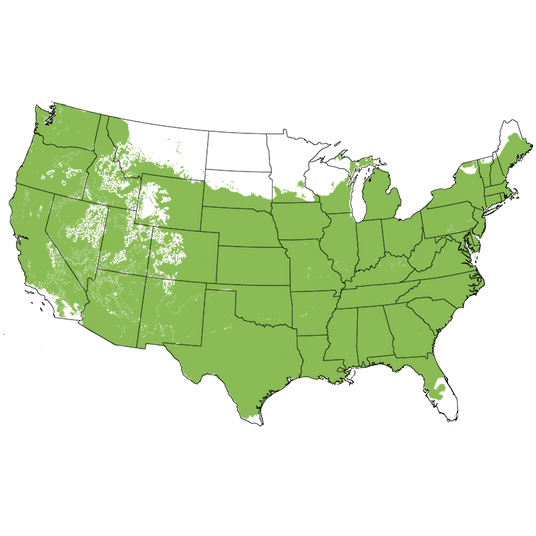
Growing Zones 5-9
Heart-Shaped Gems Elephant Heart Japanese Plum Tree!
- Incredible Large, Heart-Shaped Fruit
- Gorgeous Blood-Red Juicy Flesh
- Red & Green Skin & Frosted Bloom
- Rich, Berry-Like & Distinctive Flavor
- Early Spring Bloom of White Flowers
- Fragrant & Calls Pollinators
- Fresh Eating, Canning & Freezing
- Clingstone
- Prolific Bearing
- Late Season Harvest
- Dark-Green Foliage & Upright Growth
- Disease & Heat Resistant
- Pollinated by Beauty or Santa Rosa
- ~500-600 Chill Hours
The Elephant Heart Plum Tree (Prunus salicina 'Elephant Heart') produces large, heart-shaped plums with sweet, juicy richly flavored blood-red flesh. It's firm and juicy and excellent for fresh eating, canning and freezing!
A Japanese Plum variety, the Elephant Heart ripens when most plums are long gone, with a prolific harvest in September. You can extend your plum harvest longer by planting this tree among your earlier fruiting varieties!
Originating in the early 1900s by Luther Burbank, this is sometimes known as the Burbank Elephant Heart Plum tree or the Blood Plum due to its coloration.
Smothered in glorious white blossoms in the spring, your tree will be humming with pollinators! These fragrant flowers are an early spring delight! The dark-green foliage emerges soon after and cloaks the tree in vibrant greenery until fall. Providing wonderful shade and backdrop for the juicy red gems in autumn, plus some fall color!
Elephant Heart does require a pollinator to produce that novel fruit, so pair it up with another Plum for cross-pollination, such as Beauty or Santa Rosa.
How to Use Elephant Heart Japanese Plum Tree In The Landscape
Japanese Plum trees are fantastic dual-purpose ornamental beauties! Spring blossoms, lush foliage and juicy red gems, even the winter branching structure is ornate!
Create a spectacular specimen tree in your front landscaping or soften the edges of a garage or shed with a lovely tree that also provides a juicy bounty. Add to side yards or in hedgerows for privacy and screening neither you or your neighbors will mind seeing.
Growing to a hefty size if allowed, Elephant Heart Plum casts cooling shade for your patio and seating areas as well as over garden beds, just be sure you’ll still be able to reach your harvest!
Prune smaller as needed for easy to reach snacks and to incorporate into any sized yard or home orchard. You can easily control the size as you like, or try your hand at Espalier for a truly unique conversation piece!
Plums are delightful for eating fresh, and can be stewed, used in jams and jellies, or made into compotes, puddings, pies, and cakes. Plums are a good source of Vitamin C and make for delicious healthy snacks.
#ProPlantTips For Care
Elephant Heart Plum prefers drier, more arid climates, but also suitable for USDA growing zones 5 through 9 as well. Situate in an area that is protected from frost pockets and with good air circulation, and a site that favors the morning sun.
Plant in full sun for the most vigorous growth and best fruit. Provide at least 6 hours of sunlight per day.
Japanese Plums can grow in many soil types but do best in fertile, well-drained soil. Periodic deep watering in the summer months is advised, even though the trees are fairly drought tolerant. A generous layer of mulch helps retain soil moisture as well as insulate the root system from heat and chill.
For best results, fertilize your tree regularly with Dr. Earth Fruit Tree Fertilizer or a good organic, slow-release fertilizer. Add Nature Hills Root Booster while planting for a life-long symbiotic relationship with the tiny feeder roots.
Provide ample water for your young tree while it becomes established, not allowing it to dry out between waterings. Then reduce your watering to moderate, yet consistent moisture during the heat of summer and when fruiting.
Heavy pruning is necessary at all ages to control size (if desired) and to remove damaged, dead or diseased branching. Prune also to keep an open canopy, so that both sunlight and airflow reach the interior. Head over to read more on Plum Tree Care in our Garden Blog for more Fruit Tree Planting, Fruit Tree Pruning and Plum Tree Care tips and tricks can be found!
You’ll adore this unique fruit tree and its fascinating fruit! But only if you order yours today at NatureHills.com before they’re gone!
Plum Tree Frequently Asked Questions
How long does it take for Elephant Heart Japanese Plum Trees to bear fruit?
Nature Hills Nursery sells fruit trees with mature root systems that are already three to four years old, so you’ll enjoy fruit sooner than you would with younger trees! Expect young Plum trees to begin fruiting usually by the 2nd to 4th year after they establish in your landscape.
How big do Elephant Heart Japanese Plum trees grow? How fast do Plum trees grow?
The Elephant Heart Japanese Plum tree can grow to a mature height of 15-25 feet and a mature width of 5-15 feet.
Once your Plum tree has been established (after the first year), it can typically add 13-24 inches of new growth per growing season. If your plants are growing less than that in a season, it may be worth your while to check the fertility level.
Where is the best place to plant a Elephant Heart Japanese Plum Trees?
Plum trees grow best in well-drained, fertile soil in at least 6 hours of full sun per day or more. Provide good air circulation and moderate, yet consistent water in well-drained, fertile soil.
Do You Need 2 Plum Trees to Produce Fruit?
The Elephant Heart Japanese Plum trees are not self fertile, so planting more than one Plum tree that blooms at about the same time, boosts yields on both trees and extends your harvest time!
No room? Look into High-Density Planting techniques, or choose a semi-dwarf or dwarf fruit tree.
When Should Elephant Heart Japanese Plum Tree be Planted?
Bareroot Plum trees can be planted in spring when they are available in your area. Container-grown Plum trees can be very successfully transplanted all throughout the growing season. Check for first and last frost dates for your area with your local County Extension Office.
- Plant bareroot Plum trees in the early spring.
- Plant container-grown trees anytime the ground is not frozen by digging a hole as deep as the soil line and twice as wide.
How Do I Find Elephant Heart Japanese Plum Trees for Sale Near Me?
Make your life easier and your landscape tastier by shopping for Plum trees at NatureHills.com online fruit tree nursery. You’ll find a massive selection of fruit trees for sale, including many lovely Plum tree varieties!
Choose the right tree for your area by first finding your USDA growing zone by entering your zip code in the field above the Plant Highlights section on our product pages. Narrow down your options by plant hardiness zone, sun availability, and size requirements.
Place your order, knowing it’s backed by the Nature Hills Nursery product guarantee and protected by Plant Sentry™, which helps ensure regulated plant materials aren’t sent to prohibited areas.
Expect to receive your plants at the appropriate planting time for your growing zone when temperatures are safest for those plants that ship in fall, winter, or early spring.
Shop the selection of mature Plum trees for sale at Nature Hills Nursery and place your order for Elephant Heart Japanese Plum Tree today.
What shipping options do you offer?
NatureHills.com works closely with our growers and nursery professionals to ensure we ship when it is most appropriate for your area. Our goal is to deliver the hardiest plants by avoiding extreme high and low temperatures. Check out our shipping schedule for more information and to learn our wills and won’ts when it comes to shipping plants. Find your Elephant Heart Japanese Plum Tree for sale here at NatureHills.com!
Flavorful Elephant Heart Japanese Plum
Upon his death in 1926, Luther Burbank was credited with at least 113 named varieties of Plums. Though Elephant Heart was developed by Burbank and selected by him in 1920, it would not be released and named until 3 years after his death in 1929.
The Elephant Heart plum is most likely a hand pollinated cross of possibly Satsuma and some unknown
The Stark Brothers Nursery received most of Burbank's work after his death and were tasked with determining what had value and what could be let go. The Elephant Heart Plum already being a selection that Burbank had made, along with the fruit's obvious unique qualities, put it on the fast track for naming and release by the Stark Brothers in 1929.
Named for its heart-shaped fruit, large size and rich, deep red flesh color, the variety saw limited success in the commercial markets. This was most likely due to its delicate skin which bruises easily and short shelf life after harvest. The home garden market, concerned mostly with flavor, quickly became the primary market. Aside from a few Farmers Market Growers, the popularity continues in the home garden today.
Considered by many to be one of the finest eating, late season plums. The Elephant Heart remains somewhat tart until fully ripe and some prefer this quality. Picked fresh at the time of peak ripeness, the acid sugar balance is perfect, the fruit is juicy with a rich, complex, incomparable flavor.
One of the traits that keep the Elephant Heart a home garden favorite is the long hang time. The fruit eats well and hangs on the tree continuing to sweeten for well over a month. During this time the tartness of the fruit softens, finishing with almost a tropical-like quality; with the skin taking on a tart berry like flavor that only adds to the eating experience. All in all, this is one of Burbank's finest that he never named.


